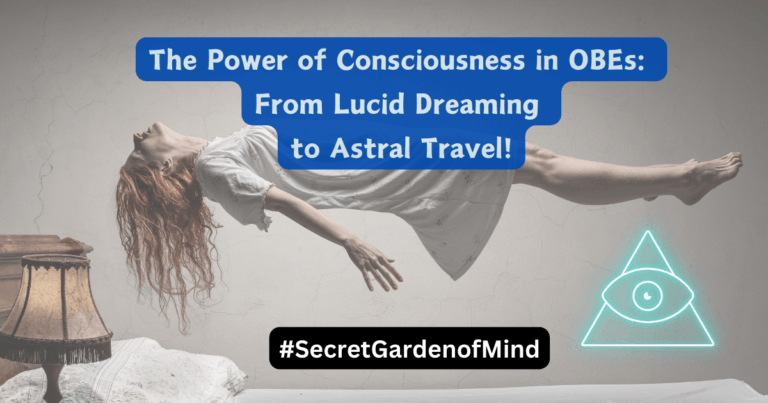What Is Mind Hacking About? Unlocking The Brains True Capacity!
What Is Mind Hacking About? The practice of getting inside our own brains and getting into the unused regions to increase our mental capacity beyond the typical 10% or whatever it is that we really use.
I will just say right off the bat that the idea we only use 10% of the brain is only really an ideology. Scientists have shown in tests (whether accurate or not) that human beings actually use the full 100% of our brains but seriously…
In a world where we’re constantly bombarded with information and distractions, it’s easy to feel like our brains are working against us. That’s where mind hacking comes in – a set of techniques and practices designed to help us take control of our thoughts, emotions, and actions with more effect.
By hacking into our brains, we can improve our cognitive abilities, memory retention, and creativity amongst other things.
In this article, we’ll explore what mind hacking is, its benefits, and some techniques that we can try out at home.
We’ll also discuss the potential risks and the importance of practicing mindfulness.
By the end of this article, you’ll have a better understanding of how to use mind hacking to your advantage and lead a more fulfilling life because of it.
But before we continue if this content is something that interests you also check out some of our other posts;
Now, I hope this is something you’ll find interesting but anyway let’s get back to it…
What Is Mind Hacking About? Unlocking The Brains True Capacity!
This post is not to be confused with the Mind Hacking book by Sir John Hargrave. However, if this is something that interests you the full audiobook is on Youtube and I will share this below;
I hope this isn’t too much of a distraction from today’s article but anyway let’s continue…
What is Mind Hacking?

So, Mind Hacking is a term used to describe a set of techniques and practices aimed at improving cognitive performance, emotional well-being, and overall mental health.
It’s based on the idea that we can take control of our minds and reshape them to work better for us.
Mind-hacking techniques can range from meditation and visualization exercises to neurofeedback and cognitive behavioral therapy. Its origins can be traced back to Ancient Eastern traditions such as Buddhism and Yoga, which emphasize the importance of mindfulness and mental discipline.
In recent years, this field of neuroscience has shed light on the brain’s plasticity – its ability to change and adapt in response to new experiences and stimuli. This has led to a surge of interest in mind hacking, as people look for ways to optimize their brain function and unlock their true potential.
At the heart of mind hacking is the concept of neuroplasticity, which refers to the brain’s ability to form new connections between neurons and reorganize existing ones. This means that we can change the way our brains work by engaging in certain activities and practicing certain behaviors.
By intentionally rewiring our neural pathways, we can improve our memory, focus, and creativity, and even overcome mental health challenges such as anxiety and depression.
As you can see it really is amazing and of course something I will explore further in the next section below;
What Are The Main Benefits of Mind Hacking
Firstly one of the primary benefits of mind hacking is the potential to improve cognitive abilities such as memory, attention, and decision-making. By training our brains to focus better, we can be more productive and efficient in our work and personal lives. This can help improve creativity and problem-solving skills by allowing us to see things from different perspectives, and even just these few things already say so much about the potential of mind hacking.
But another key benefit of mind hacking is improved emotional well-being.
For example, by practicing mindfulness and meditation, we can learn to manage stress and anxiety more effectively.
Mind hacking can also help us develop greater self-awareness and empathy, which can improve our relationships with others including family and friends. Our true nature may be more hidden than we could ever realize so…
Some Helpful Mind Hacking Techniques
These are very similar to the points in my other articles about brain training I know but for anyone just finding this, here are a few tips that may help you if you would like to try mind hacking.
- Meditation: Training the mind to focus on the present moment and cultivate a greater sense of calmness and inner peace is a very popular technique to help unlock the mind. Studies have shown that regular meditation practice can have profound effects on cognitive abilities and emotional regulation.
- Brain Training Apps: There are many apps available that are designed to help improve cognitive abilities such as memory and attention. These apps typically involve playing games or solving puzzles that challenge the brain.
Some good apps to consider are Lumosity and CogniFit. [Check Out My Link HERE}
- Visualization Exercises: These involve imagining yourself in a certain situation and visualizing a positive outcome. This technique can help improve confidence and reduce anxiety.
- Positive Affirmations: Quite like visualization exercises practice telling yourself good things about yourself. Try to do this every morning and night to help build a greater sense of self-appreciation.
- Cognitive Behavioral Therapy: This is a type of therapy that focuses on changing negative thought patterns and behaviors. It can be effective in treating anxiety, depression, and other mental health conditions.
Overall, mind hacking has the potential to improve our cognitive abilities, emotional well-being, and overall quality of life.
We shall explore this further below in the next section;
The Basics of Mind Hacking: Understanding the Concept and its Applications
Mind hacking refers to the practice of using various techniques to reprogram our minds and change our behaviors, beliefs, and habits. The term can cover a wide range of methods, from meditation and visualization to hypnosis and neuro-linguistic programming (NLP).
The goal of mind hacking is to gain more control over our thoughts and emotions and achieve greater personal growth, creativity, and productivity.
There are many different mind-hacking techniques that you can use to achieve various goals.
Some of the most popular ones include:
- Meditation: This ancient practice involves focusing your attention on a particular object, sound, or sensation to quiet your mind and increase your awareness. Meditation has been shown to have many health benefits, such as reducing stress, anxiety, and depression, and improving concentration, memory, and immune function.
- Visualization: This technique involves creating mental images of your desired outcomes and using them to inspire and motivate you. Visualization can help you overcome obstacles, boost your confidence, and enhance your performance.
- Affirmations: This technique involves repeating positive statements about yourself and your goals to reprogram your subconscious mind and change your beliefs and behaviors. Affirmations can help you build self-esteem, overcome limiting beliefs, and cultivate a growth mindset.
- Hypnosis: This technique involves inducing a trance-like state in which your conscious mind becomes more relaxed and your subconscious mind becomes more receptive to suggestions. Hypnosis can help you overcome addictions, phobias, and other issues that are rooted in your subconscious mind.
- NLP: This technique involves using language and communication to influence your thoughts and behaviors. NLP can help you improve your communication skills, build rapport with others, and change your limiting beliefs and patterns.
>>> Related Post: Inspire3 NLP Hero Review 2023 <<
Associated Risks of Mind Hacking
Despite its benefits, there are also potential risks to be aware of with mind hacking. So It’s important to approach these techniques with caution and be mindful of your own limits and boundaries.
One potential risk of mind hacking is overexertion or burnout. If you push yourself too hard or try to do too much too quickly, you may experience mental and physical exhaustion.
This can lead to negative consequences such as increased stress and anxiety, decreased cognitive function, and reduced motivation. Even the reinforcement of negative thought patterns so always be sure to bear this in mind.
Quite simply, If you focus too much on trying to change your thoughts or behaviors, you may inadvertently reinforce negative thought patterns by constantly thinking about them.
This can lead to increased anxiety, depression, and other mental health issues. However,…
How To Mitigate These Risks
To safeguard against overdoing it with mind hacking one key aspect that is important is to practice mindfulness in your mind-hacking efforts. Mindfulness involves being present in the moment, observing your thoughts and feelings without judgment, and being aware of your own limitations. By practicing mindfulness, you can avoid overexertion, manage negative thought patterns, and stay attuned to your own needs and boundaries.
It’s also important to seek professional help if you are struggling with mental health issues.
Mind Hacking techniques can be effective, but they are not a substitute for professional help and guidance.
So that is really most of it. Again check out my other articles for further reading. I have shared links in the first section but you can also find more below to check out some of my more recent work.;
In Conclusion
For those that are interested in mind hacking, this has the potential to unlock the brain’s true capacity and improve cognitive abilities, emotional well-being, and overall quality of life. However, for all its benefits it’s still important to approach mind-hacking techniques with caution and to seek professional help if needed.
By practicing mind-hacking techniques in a safe and mindful way, you can improve your brain function and live a happier and more fulfilling life.
However, It’s also worth noting that mind hacking is not a one-size-fits-all solution, and what works for one person may not work for another. Therefore, it’s essential to experiment with different techniques and find the ones that resonate with you and your goals.
Moreover, it’s essential to prioritize self-care and maintain a healthy work-life balance while practicing mind hacking. Taking care of your physical and mental health through regular exercise, good nutrition, and adequate sleep is equally important. Each area can further enhance the benefits of mind hacking and prevent burnout.
So take stock here and if you would like to ask me anything about mind hacking please do so in the comments section below. I will look to answer within 24 hours thank you for your time.
FAQs
In relation to the content above here are some related FAQs that I would like to try and answer.
What are some common mind hacking techniques?
Some common mind hacking techniques include mindfulness meditation, brain games, visualization exercises, gratitude journaling, and cognitive behavioral therapy.
Can mind hacking help with mental health conditions?
Mind hacking techniques can be helpful for managing symptoms of mental health conditions such as anxiety and depression. However, it’s important to seek professional help if you are struggling with mental health issues.
Are there any risks associated with mind hacking?
There are some potential risks associated with mind hacking, such as overexertion, burnout, and the reinforcement of negative thought patterns. It’s important to approach mind hacking techniques with caution and mindfulness.
How long does it take to see results from mind hacking?
The amount of time it takes to see results from mind hacking can vary depending on the technique and the individual. Some people may see results quickly, while others may need to practice regularly for several weeks or months to see improvement.
Is Mind Hacking Suitable for Everyone?
While mind hacking techniques can be helpful for many people, they may not be suitable for everyone. It’s important to listen to your body and mind and seek professional help if needed.
Can Nootropics Help with Mind Hacking
Nootropics, also known as smart drugs or cognitive enhancers, are supplements that claim to improve cognitive function, memory, creativity, and motivation. While some nootropics may have potential benefits for mind hacking, it’s important to approach them with caution and skepticism, as many of them lack scientific evidence or may have unwanted side effects.
Read Related Post: Nootopia Nootropics Review 2023
Final Word
So what is mind hacking about? I hope today’s article has gone some way to help answer this question for anyone that is interested in developing their own routines and techniques for brain training.
I have mentioned this already but if you have any questions or would like to share any feedback please feel free to leave us a comment in the comments section below or contact us at XanderChakra@gmail.com
Many thanks and all the best
Alex C.
SecretGardenofMind.com
References
- Doidge, N. (2007). The Brain That Changes Itself: Stories of Personal Triumph from the Frontiers of Brain Science. Penguin Books.
- Davidson, R. J., & Begley, S. (2013). The Emotional Life of Your Brain: How Its Unique Patterns Affect the Way You Think, Feel, and Live–and How You Can Change Them. Hudson Street Press.
- Langer, E. J. (1990). Mindfulness. Addison-Wesley Publishing Company.
- Alvaro, P. K., Roberts, R. M., & Harris, J. K. (2017). A Systematic Review Assessing Bidirectionality between Sleep Disturbances, Anxiety, and Depression. Sleep, 40(12).
- Brosschot, J. F., Verkuil, B., & Thayer, J. F. (2010). Conscious and unconscious perseverative cognition: Is a large part of prolonged physiological stress due to unconscious stress? Journal of Psychosomatic Research, 69(4), 407-416.
- Cognitive Training Research Collaborative. (2015). Cognitive Training: What Works? A Review of Cognitive Training and Brain Games Literature Prepared for the International Conference on Aging in the Americas. The Gerontologist, 55(Suppl_1), S59-S61.
- Kandel, E. R., Schwartz, J. H., & Jessell, T. M. (2000). Principles of Neural Science, Fourth Edition. McGraw-Hill.
- Kaslow, N. J., & Dunn, S. E. (1997). Mind-body interventions: Applications in psychiatry. The American Journal of Psychiatry, 154(2), 141-143.


